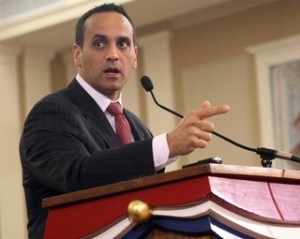
By Andrew Firestone
Mayor Joseph Curtatone came out April 26 in his unequivocal support for the State budget plan, which would allow the city to enter into a newer, cheaper healthcare plan. By having all city employees and retirees join onto the Group Insurance Commission (GIC), the City projects a budget saving of around $8 million dollars for the fiscal year, going a long way towards bridging the City’s 7 million dollar budget gap.
“As you saw in this fiscal year that’s about to end, in the [City] budget presentations, that you have a crossroads where you have local aid on the decline and you have healthcare costs that are going up. That’s the first time in history, so every new tax dollar is going to pay for healthcare,” said Curtatone.
Curtatone has worked to get cheaper healthcare for the last seven years. He and other city leaders across the state have had trouble handling the budget since universal healthcare came to Massachusetts five years ago. The GIC is the same system used by the State in order to control healthcare costs, but has not been extended to cities and towns.
The movement in the house budget, proposed by State House Speaker Robert DeLeo (D-Revere), would allow cities and towns to unilaterally negotiate with the GIC for all of their employees, union and non-union. The City of Somerville projections show that aside from the $8 million in savings for the city, employees are projected to save $2.2 million.
“As a matter of principle, this is the taxpayer’s money. It’s not [the State’s], it’s not the special interest groups’, its not labor’s,” said Curtatone
Having passed through the house, the budget ruling is now being debated on the Senate floor. Curtatone urged them to keep the bill in the budget. “It looks like we might finally have a solution,” said Curtatone. “We want them to do it right, we want them to do it one time, and we don’t want to have to go back and fight for it again.”
The new policy would also enter all employees into the same premiums, and the same split of 80-20 for their payments with their HMOs. This raises the rate for most union employees by five percent, but lowers the rate for non-union employees by the same percentage.
Current conditions of the City’s health insurance require a necessary 70 percent of all union representatives to approve changes in the healthcare plan under coalition bargaining, a threshold Curtatone called “unrealistic.” “We strongly believe that we should have the ability as managers and those in charge of our financial destiny, if it makes sense for us to go the GIC following reasonable parameters,” said Curtatone.
The City’s annual costs of $42.4 million has become too high to maintain, and has become a dominant factor in city budgeting, said Curtatone, as it continues to rise in the last fiscal year alone by 13 percent. “We’re looking at a minimum $2 million increase for the next fiscal year while we’re trying to close a seven million structural dollar budget gap.”
While Curtatone expressed disappointment in the attempts to thwart the Speaker’s budget by Martin Walsh (D-Dorchester), he said that the ruling would be nothing like that seen earlier in Wisconsin, which caused a crisis in the state.
“Wisconsin was a bill directly against collective bargaining rights. In all aspects, every version has a laborer at the table here.”
The Mayor said that rising costs are forcing cities to eliminate union and non-union jobs. “Municipalities are forced to find new ways the find to get rid of those services. If they are going to find ways to do it at a lesser cost, they have no choice.”
“The numbers don’t lie. It’s not stripping away union rights. It’s a common sense approach to solve a very serious problem that is strangling the finances of the commonwealth and the cities and towns.”















Reader Comments